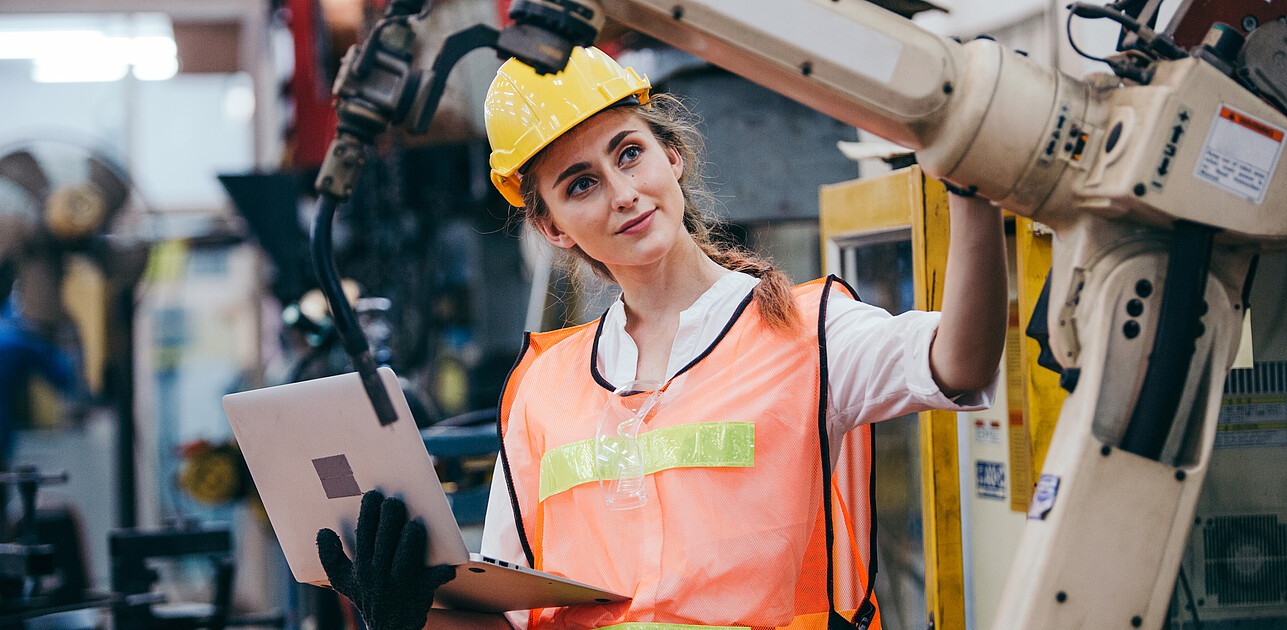

Article: Friday, 17 October 2025
Higher productivity and good working conditions don’t have to clash. Quite the opposite, as the research of PhD candidate Henk van Rhee shows. He demonstrates that measures aimed at boosting productivity often also improve wellbeing on the work floor. He also found that companies exempted from preventive inspections did not change their behaviour. He defends his PhD thesis: Aligning economic and social performance: The role of workplace measures and deregulation on 19 September at Rotterdam School of Management, Erasmus University (RSM).
Imagine a metalworking company in the Netherlands that installed a new milling machine. Management purchased it mainly to increase speed and efficiency, yet for operators on the work floor it also meant greater safety because the machine was better shielded than its predecessor. It’s a clear illustration of what Van Rhee demonstrates in his dissertation: economic motives and employee wellbeing do not exclude one another; they often reinforce each other.
Van Rhee studied more than a hundred small Dutch metalworking companies that employed between seven and fifty people. While safety is an important priority for many firms, it was rarely the main reason for investing in new measures. “About 85 per cent of interventions are primarily driven by economic motives,” Van Rhee explains. “But those measures often also have an effect on social outcomes, such as workplace safety.”
Focusing on small Dutch metalworking firms made them easier to compare with each other, and their relationship with the Dutch employers’ organisation Koninklijke Metaalunie meant Henk could collect data over a longer period. The sector is also interesting from the perspective of occupational health and safety. “It is relatively risky work. A single mistake can mean losing a limb,” he points out.
His central question was what drives companies to invest in working conditions and wellbeing. Is it primarily concern for employees, or economic considerations? The distinction is not always clear. “Take a lifting aid, for example,” Van Rhee says. “Some companies buy it for economic reasons. People work faster when goods are already at the right height. Another company might purchase the lifting aid mainly out of concern for a colleague’s back.”
Van Rhee primarily looked at the motivation behind the action. “We did not label the measure itself, but the intention. Measures with an economic motive generally had an impact on both productivity and wellbeing. Measures with a primarily social motive, in my research, had no measurable effect, neither social nor economic – possibly because they are relatively small interventions, and their impact is limited.”
He saw a similar pattern for investments in machinery. “Machines are almost always bought because they can produce faster or handle more complex products,” he says. “But often they are also safer for the operator, better enclosed and with fewer harmful substances released.” The same applies to redesigning a factory hall. “It is never done for social reasons, but nine times out of ten it makes things safer or healthier for employees, because less material has to be moved around.”
The context matters, he emphasises. In a sector with heavy, physical labour and a high risk of accidents, social and economic performance are closely linked. In a sector with low skilled work, the dynamic might be different. But the message is clear: investing in productivity can also be an investment in wellbeing.
An unusual opportunity arose when the Dutch Ministry of Social Affairs and Employment (Ministerie van Sociale Zaken en Werkgelegenheid) and the Dutch Labour Inspectorate allowed Henk van Rhee to carry out an experiment with exemptions from inspections. In this trial, preventive, unannounced inspections were temporarily suspended at half of the companies. Van Rhee’s research showed that firms with an exemption did not change their behaviour.
“Inspections are extremely labour intensive. Preventive inspections across a wide group of companies do not seem effective based on my research. Attention might be better directed at identifying small high-risk groups and carrying out very targeted inspections on those,” he says.
But more importantly: “My recommendation is to continue encouraging entrepreneurs to invest primarily from an economic perspective. That resonates much better with them, and such measures generally have a positive side effect on social performance.”
Department of Technology and Operations Management
Rotterdam School of Management (RSM)
Erasmus University

Read Henk van Rhee’s PhD thesis: Aligning economic and social performance: The role of workplace measures and deregulation


Science Communication and Media Officer
Rotterdam School of Management, Erasmus University (RSM) is one of Europe’s top-ranked business schools. RSM provides ground-breaking research and education furthering excellence in all aspects of management and is based in the international port city of Rotterdam – a vital nexus of business, logistics and trade. RSM’s primary focus is on developing business leaders with international careers who can become a force for positive change by carrying their innovative mindset into a sustainable future. Our first-class range of bachelor, master, MBA, PhD and executive programmes encourage them to become to become critical, creative, caring and collaborative thinkers and doers.
